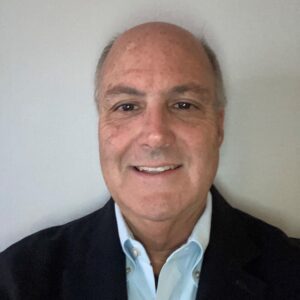
Paul McLaughlin (GEng’86) currently serves as Chief Engineer at Honeywell Process Solutions, where he leads a division that provides industrial customers with automation and software to increase the safety, reliability, efficiency and sustainability of their operations. McLaughlin earned a master’s degree in Computer and Information Science from Penn while balancing a full-time career, first at Leeds & Northrup and then at Honeywell. McLaughlin also serves as a Director for the Penn Engineering Alumni Society, and he collaborates with faculty on research in automation, robotics and AI. In this Q&A, McLaughlin reflects on the rigor of his graduate studies, the pride his father felt at his graduation and the importance of giving back to the University that shaped his career.
Tell us about your time at Penn Engineering.
My experience at Penn was as a graduate student, attending part-time while being employed full-time at industrial automation companies, first at Leeds and Northrup, and then Honeywell. At the time, Penn only had graduate courses during the day and so I would split my time by working mornings, going to afternoon classes and returning to work in the evenings. I was fortunate to attend and complete my education prior to marriage and the responsibilities that came with raising a family.
What was at once obvious to me was the rigor and skill that the faculty brought to bear for my coursework and assignments. It forced me to work harder and think better as an engineer, characteristics that I am able to leverage to this day. I am very grateful for the opportunity to attend Penn Engineering with a core focus on artificial intelligence. I am also very grateful to my managers at L&N and Honeywell for affording me the flexibility to attend class and complete my school assignments.
What was your most memorable moment at Penn?
My most memorable event would be my graduation itself, owing to the impact it had on my father. My father was born and raised in Philadelphia and did not have a chance to go to college due to the outbreak of World War II and his enlistment in the Army. But he always saw Penn as a shining ‘city on the hill,’ at once unattainable for him but recognized as a cornerstone of the City’s fabric. My graduation from Penn was one of the great joys of his life, and his pride in my accomplishment.
What is a fun fact about you?
Although my college degrees are in Computer Science and Engineering, I enjoy spending time ‘in the analog world’ away from technology, with interests in sailing, hiking and bicycling. My wife and I moved to Philadelphia and live in the Fitler Square neighborhood, a short walk to Penn’s campus (and the Pennovation center). We value the many opportunities in the City of Philadelphia to remain active and engaged.
Which professor had the greatest impact on you and why?
The person who’s had the greatest impact for me as a professor is the one I have worked with for the past 15 years on joint research between Honeywell and Penn: Rahul Mangharam. Rahul is truly a gifted individual with a fantastic awareness of the practical application of latest technologies in automation, robotics and AI, and is an excellent educator to his students and his lab post-doc colleagues at his “X lab” in the Department of Electrical and Systems Engineering.
What inspires you to give to Penn?
As a Director of the Engineering Alumni Society, I believe that Penn retains and maintains its long-standing role as a key part of the City’s overall health and welfare, as an educator, as an innovator and as a partner in our community. I believe strongly in practicing the philosophy of “time, talent and treasure,” that I should generously contribute to the best of my abilities in each of these areas. For me, giving to Penn is both a financial responsibility and one involving the donation of my time and talents to make Penn, and its place in our community, as strong as it can be.
